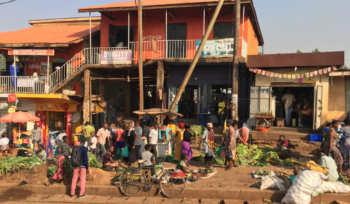- 28/01/2021
- Posted by: Julien Garcier
- Categories: Articles, Consumer Goods / FMCG, Financial Services, Online Panels, Sagaci Insights

“If you deposit USD100 in a bank account with an interest rate of 2%, how much money will be in the account at the end of five years?”
This question is frequently used to benchmark basic financial literacy. A Sagaci Research survey that was conducted online during December 2020 found that almost three quarters (74%) of respondents in nine African countries (Cameroon, Côte d’Ivoire, Ethiopia, Ghana, Kenya, Mozambique, Nigeria, South Africa and Uganda) were able to answer it correctly.
This figure compares favourably to the rest of the world: According to a G20/OECD INFE report on adult financial literacy in G20 countries that was published in 2017, an average of 51% of respondents across all 18 countries were able to correctly answer this question. The success rate ranged from 12% in Mexico and 22% in Argentina to 74% in China and 78% in Indonesia.

No gender difference found …
For African respondents, no gender difference was found i.e. men were just as likely to give the correct answer as women. In most countries where this type of survey has been conducted, men were found to be significantly more likely to answer correctly than women.
… But age and socio-economic status are important
However, answering correctly was found to be positively correlated with age and socio-economic status in Africa: 80% of those aged 36 years or over answered correctly, compared with 70% of those aged between 18 and 25 years and just 52% of those aged under 18 years. Meanwhile, 85% of affluent/middle-class consumers gave the correct response, compared with 64% of low-income consumers. These findings are consistent with data from other parts of the world.
Why it matters
A study conducted by Annamaria Lusardi and Olivia S. Mitchell that was published in the Journal of Pension Economics & Finance in 2011 found that people who had mastered basic financial concepts like this were likely to enjoy higher returns on their investments and pay a lower rate of interest on their debts. In general, they were found to be more financially resilient (i.e. better able to cope with unexpected expenses and economic shocks like unemployment) and better able to accumulate wealth. More generally, studies have found that optimal outcomes can be approximated from even very complex models of saving by utilising a small number of relatively simple rules, such as saving a certain percentage of income above a certain subsistence level.
Sources:
https://www.oecd.org/daf/fin/financial-education/G20-OECD-INFE-report-adult-financial-literacy-in-G20-countries.pdf
https://www.cambridge.org/core/journals/journal-of-pension-economics-and-finance/article/financial-literacy-around-the-world-an-overview/0488F901318E0FBC4C92DC6E964AB89C
https://www.jstor.org/stable/41494445?seq=1
Methodology
Survey conducted on December 18th, 2020 with 1,885 adults across 9 African countries: Cameroon, Côte d’Ivoire, Ethiopia, Ghana, Kenya, Mozambique, Nigeria, South Africa and Uganda
Follow @SagaciResearch
Want to learn more about Sagaci Research unique consumer and trade-related data-feeds and insights? Reach out to us at contact@sagaciresearch.com





